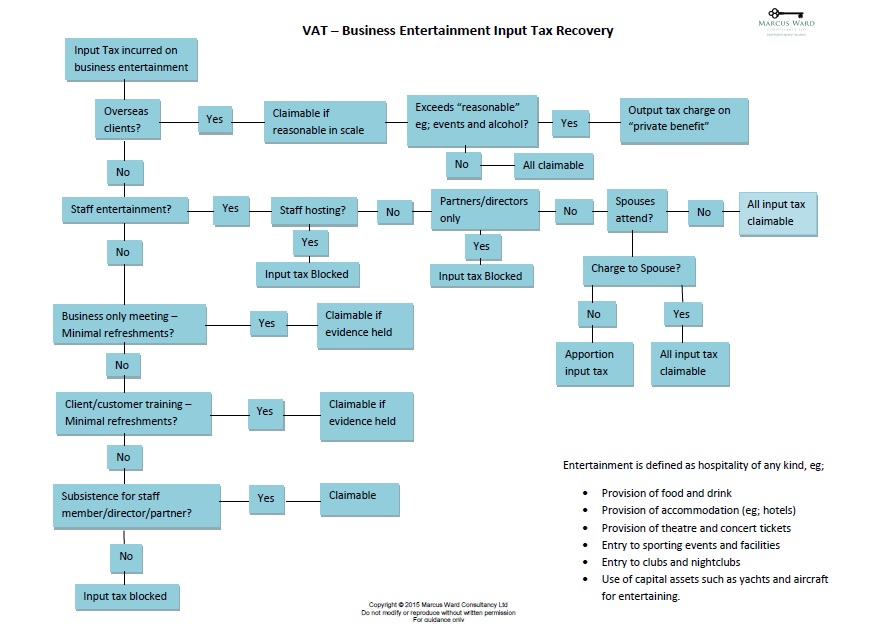The “fun” quiz.
The important thing to consider is what the purchaser does, or intends to do, with the land once purchased. This will dictate the input tax recovery position. So, can the input tax be recovered? Answers to quiz questions in the 26 July 2019 post below
Answers
On the purchased land the person constructs:
- a dwelling and supplies the house on a 25-year lease
Yes
The lease is 21 years or over, so it is zero rated. However, a lease under 21 years would be an exempt so no recovery. For more details
- an office and uses it for his own business supplying FS to a client in China
Yes
However, if the FS supply had been to the UK or another EU Member State, the supply would be exempt so no input tax recovery. This may change in the event of a No-Deal Brexit.
- a storage facility and a fully taxable company leases it to another company in the same partly exempt VAT group after opting to tax
No
Unlikely to be full input tax recovery as the VAT group is itself partly exempt. The Capital Goods Scheme (CGS) may apply.
- a block of ten flats with a gym and swimming pool which tenants are entitled to use. Grants 99 years leases on all flats
Yes
The supply is zero rated, notwithstanding there are additional (to usual residential dwellings) facilities.
- a dwelling but uses it for short term holiday lets of no more than a fortnight.
Yes
Holiday lets are standard rated, so the business would be taxable. The purchaser would need to VAT register, however.
- a warehouse which is sold on completion but without an option to tax being made before the sale
Yes
A ‘new” commercial building (one under three years old) is mandatorily standard rated, so no option to tax is required.
- the land is held with the intention of constructing dwellings at some time in the future, which could be over six years
Yes
As long as the intention remains, and can be evidenced, the input tax may be attributed to the future taxable, zero rated, supply.
- a factory which is not subjected to an option to tax but is leased to an US company
No
The place of supply (POS) is the UK as this is where the immovable property is located, regardless of the status of the client. Consequently, this is an exempt supply with no right to input tax recovery.
- a block of three flats which are rented for six months before freehold sale
No, or maybe, or yes
The initial supply is exempt, so the input tax is, preliminarily, attributed to the short term lets. However, a simplified form of the partial exemption de minimis limits may be used and, depending on the scale of the development, it is possible that some, or all, of the input tax may be recovered despite the initial exempt supplies.
- a sport hall by a school Academy which is leased to sporting charities and also used for its own educational purposes. No option to tax
No
It would be unlikely that an Academy would be able to recover all the input tax. Because it would make (exempt) business supplies, this would fall outside the VAT Act 1994, Section 33 rules, so there would be no input tax recovery in respect of those activities. There would be an apportionment and only the input tax referable to own use would be recoverable as those supplies of education would be non-business. If the Academy opted to tax the facilities (and was VAT registered), the input tax would be recoverable in full. No input tax referable to business use would be possible if the Academy was using VAT126 claims. VAT and Academies
- a manufacturing plant which a company rents to a connected (non-VAT grouped) party which makes and sells toys. The option is taken
Yes
As the connected party is fully taxable the anti-avoidance rules do not apply. If the connected party was not able to recover the VAT charged to it (say it made exempt supplies) the anti-avoidance legislation would kick in and the option would be disapplied, meaning that the input tax in the hands of the developer would not be recoverable.
- a car showroom and offices which a company uses for its own business of selling cars, providing finance and brokering insurance
No
There would be mixed use; car sales are taxable, finance and insurance are exempt, so some of the input tax would probably not be recoverable (dependent upon the de minimis limits). The development would be an overhead of the business. It is likely that the property would be an item covered by the CGS.
- a care home for the elderly which a company uses for that purpose
No
This likely be an exempt supply, so no input tax recovery on supplies which are properly VATable. There may be reliefs on construction costs, however.
- a small cabin office and the remaining land is used for a forestry business which will have no sales for ten years (when the trees are grown)
Yes
Although the intended taxable supplies are some way off, as long as the intention can be evidenced, the input tax may be recovered when incurred as it will relate to those intended taxable transactions. If the intention changes, this may impact the initial recovery. More information
- a residential block which is immediately transferred to an associated company (an arm’s length transaction) on completion. No tenants are in situ.
Yes
The transfer of the freehold triggers the zero rating. The associated company may then, if it chooses, make exempt supplies without a VAT cost. This type of planning can be very helpful.
So there we have it. How did you get on? I would say that any score over eight is very good.

